Welcome back, at long last, to The Collision! Regular readers will notice we took a discreet pause from this newsletter after our previous issue, which we filed way back in July during the Republican National Convention. Like the classified documents case against Donald Trump in Florida, our focus here at The Collision was put on ice. Since then, a lot has happened in the presidential race. But all was quiet at the intersection of the campaign and the criminal justice system—until this week.
We’ll dive into special counsel Jack Smith’s superseding indictment against Trump in his election interference case and what, exactly, that means for the prospects of an actual trial or conclusion for this case. And for those of you wondering what to expect from this newsletter in the future, while we may not have a new issue every week, be on the lookout for updates in your inbox when big news on this beat breaks.
The Docket
- Jack Smith has been busy. In addition to the revised indictment in Washington, D.C., the special counsel on Monday filed an appeal to the decision by Judge Aileen Cannon in the Southern District of Florida to throw out the classified documents case against Trump. In a 60-page filing, Smith argued that Cannon’s dismissal—on the grounds that Attorney General Merrick Garland had neither the authority from Congress to appoint Smith special counsel nor the appropriations to fund the special counsel—“deviated from binding Supreme Court precedent, misconstrued the statutes that authorized the Special Counsel’s appointment, and took inadequate account of the longstanding history of Attorney General appointments of special counsels.”
- The rest of the filing points to the sources of that authority, from statutory (here, here, here, and here) to Supreme Court precedent (in United States v. Nixon), to the “long history” of more than 150 years of special counsels investigating cases of high sensitivity and consequence. These appointments, which predate even the creation of the Department of Justice, have been upheld by courts, Smith argued.
- Trump’s legal team has roughly a month to reply to Smith’s appeal filing. The former president, meanwhile, responded on Truth Social to both the appeal and the superseding indictment in Washington by declaring them an effort to “resurrect a ‘dead’ Witch Hunt” against him. The Trump campaign promoted his posts in an email to reporters.
- President Joe Biden may not be running for reelection, but his son Hunter’s tax evasion trial is moving forward apace. The federal trial is set to begin in Los Angeles next Thursday, September 5, with opening statements likely to begin the following Monday. Based on estimates from both prosecutors and Hunter’s defense team, the trial should take less than two weeks.
What’s Different, What’s the Same, and What’s Next in the New Trump Indictment
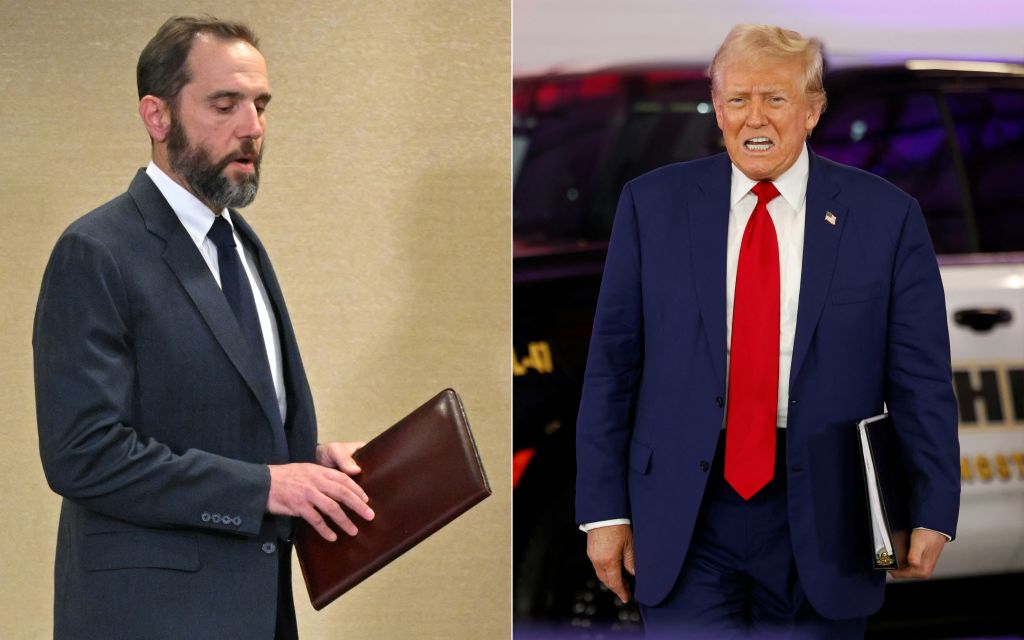
While the rest of us were chugging Natty Light by the lake this summer, special counsel Jack Smith was locked in a windowless janitor’s closet with nothing more than an electrical outlet, some MREs, and a typewriter. (Or something like that.) And now, eight weeks after the Supreme Court hit the reset button on the federal election interference case against Donald Trump, Smith has emerged.
First, let’s catch up. In August 2023, Smith indicted Trump on four counts related to his attempts to secure a second term as president after he lost the 2020 election:
- Count 1: conspiracy to defraud the United States
- Count 2: conspiracy to obstruct an official proceeding
- Count 3: obstruction of and attempt to obstruct an official proceeding
- Count 4: conspiracy against rights.
The facts and evidence that Smith used to support these charges were wide-ranging and included Trump’s conversations with White House officials and his appointees at the Department of Justice. Some of those conversations were about whether to appoint a new acting attorney general who was more sympathetic to his claims of election fraud.
Then, on July 1, 2024, the Supreme Court held that presidents enjoy some immunity from criminal prosecution after they leave office. As we wrote to you shortly after the ruling, Chief Justice John Roberts created three buckets in his majority opinion: 1) if it’s an unofficial act, like something everything you and I do every day, a former president can be indicted, just like us; 2) if it’s an official act that’s part of the president's “core constitutional powers,” like pardoning someone, he cannot be indicted; 3) if it’s a non-core official act, meaning something he could only do using the powers of the presidency, then he can be indicted only if “the Government can show that applying a criminal prohibition to that act would pose no ‘dangers of intrusion on the authority and functions of the Executive Branch.’”
Specifically, the court held that Trump threatening to remove his attorney general—which Smith initially included in the indictment—was core official conduct. To hold otherwise would leave presidents open to criminal prosecution for all sorts of political choices. For instance, a president could be charged with a crime for considering pardoning someone he believed was wrongly convicted but who also would support his reelection campaign, or for talking to aides about removing a secretary of defense who believed that certain enhanced interrogation techniques used against suspected terrorists were unlawful.
The superseding indictment filed by Smith this week fixes a lot of these glaring problems with the first indictment. It’s nine pages shorter, a lot of the more colorful storytelling has been pared down, and the indictment is now clearly focused on Trump’s unofficial conduct as a candidate for political office and not his official—if ethically questionable—conduct as president.
And for those concerned that the Supreme Court let Trump off the hook, there is reason to be satisfied with this revised indictment. Trump is charged with the same number of crimes (four) and under the same statutes as before. In other words, Smith didn’t need any of that legally murky material to bring these charges against Trump. This indictment, like the original, charges Trump with violating the law when he pressured state election officials to ignore legally cast votes in their states; when he supported the creation of illegitimate slates of electors; when he pressured the vice president, who was acting in his role as president of the Senate, to reject the state election certifications; and when he attempted to persuade members of Congress to delay the vote on January 6.
Trump’s team will now argue that its client is also immune from prosecution for these charges based on the Supreme Court’s test. But that’s a much steeper climb under this new indictment. During oral arguments before the Supreme Court in April, Trump’s lawyer already conceded that several of these actions were unofficial—and therefore indictable—conduct.
The problem, as it ever was, will be timing. There is no world in which Trump stands trial before the election—unless he wants to do so for some political reason that would be hard to fathom. If Trump wins the election, Smith will have until noon on January 20 to win his case. That is also highly unlikely. If Smith put the pedal to the metal, at best District Judge Tanya Chutkan will have ruled by then that Trump is not immune from any charges in the new indictment, and any appeals from Trump’s team may have been rejected by both the D.C. Circuit Court and the Supreme Court. But to hold a trial on these matters, Smith will need more time.
The question becomes whether a President Kamala Harris would authorize Smith to move forward. On the one hand, Democrats have claimed this investigation had nothing to do with Trump’s decision to run for office, yet the Justice Department waited two and a half years to indict him and only brought charges after Trump announced his intention to run. On the other hand, the entire reason for appointing a special counsel is that the Department of Justice had a perceived conflict since Trump was running against its boss. Come January, that conflict will no longer exist and therefore the need for Smith to pursue this case—as opposed to a regularly appointed U.S. attorney—will also cease to exist.
So a President Harris will have to pick: continue the case as is (a potential ongoing political distraction for her administration), drop the case entirely (risking the charge that this case was always more about defeating Trump politically than the rule of law), or allow the case to move forward but under DOJ prosecutors (opening up a whole new can of worms and delaying the case even further).
Sarah’s View
This new superseding indictment is evidence that Jack Smith has no intention of letting the clock run out. It also gives a glimmer of the alternative universe of what the case may have looked like under a more disciplined, less aggressive team of prosecutors who prioritized speed over casting the widest legal net it could. In my opinion, this case could have gone to trial a year ago. It just would have required a narrow indictment like the one we saw this week that focused only on Trump’s actions as a candidate, and that had been brought a year earlier—in August 2022. Both were possible. Neither happened.


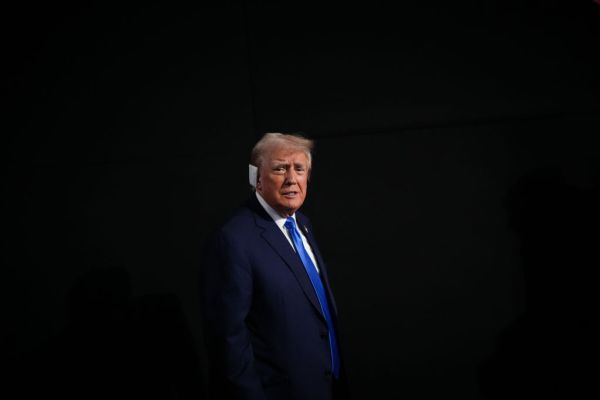
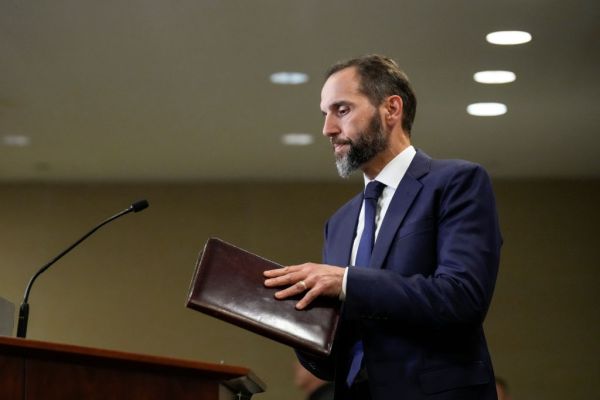
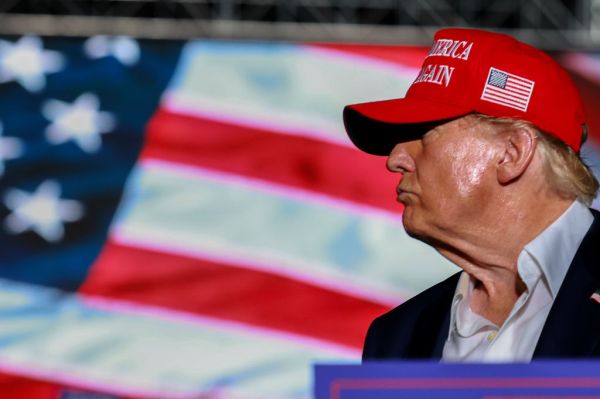

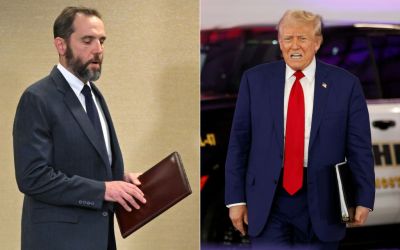
Please note that we at The Dispatch hold ourselves, our work, and our commenters to a higher standard than other places on the internet. We welcome comments that foster genuine debate or discussion—including comments critical of us or our work—but responses that include ad hominem attacks on fellow Dispatch members or are intended to stoke fear and anger may be moderated.
With your membership, you only have the ability to comment on The Morning Dispatch articles. Consider upgrading to join the conversation everywhere.